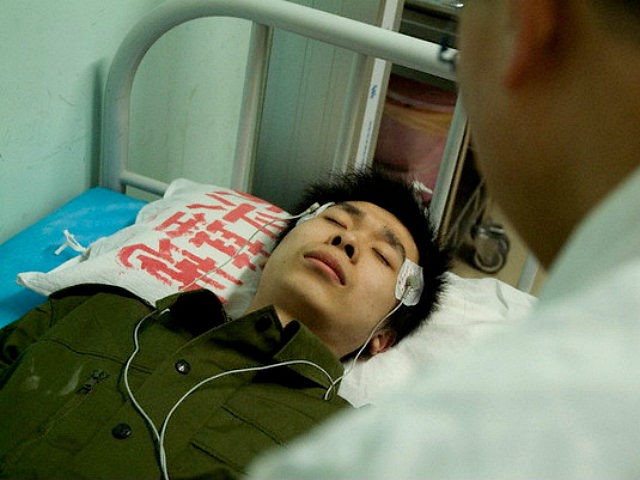China takes “Internet addiction” among the young very seriously. They have military-style “Internet detox” boot camps where children and adolescents are forced to wear uniforms, stay offline, get fresh air and exercise, and occasionally endure beatings, psychological abuse, and even shock therapy.
The New York Times relays announcements from China’s state-run media that a law has been drafted to “crack down on the camps’ worst excesses”:
“It’s a very important move for protecting young children,” said Tao Ran, the director of the Internet Addiction Clinic at Beijing Military General Hospital. He said he had seen several Chinese teenagers return from boot camps that treat internet addiction showing signs of psychological trauma.
Figures on the number or growth of internet detox camps in China are scarce, but the camps’ treatment methods have been generating controversy for years.
Among the more criticized camps is the Addiction Treatment Center in the eastern province of Shandong, which is said to have treated more than 6,000 internet addicts, mostly teenagers, with electroshock therapy since it opened in 2006. It made headlines in September after one of its teenage patients starved her mother to death in retribution for abuse she had purportedly suffered at the camp during a forced detox regime.
The draft law would ban abusive treatment like medical and electroshock therapy in the camps, as well as “physical punishments,” but it does not specify what those other punishments might include.
On the other hand, the law also limits how long minors can play games online, both at home and in public venues, and flatly prohibits them from gaming online between midnight and 8:00 AM. Game providers will also be required to “take technical measures to monitor and restrict use” and could be fined or even shut down by the government if they don’t enthusiastically comply.
The NYT notes that China’s health ministry issued “guidelines against using electroshock therapy for Internet addicts” in 2009, but evidently, it is still employed often enough to require further legislation. A report issued in the same year found there were over 24 million “digital addicts” in China, ranging in age from 13 to 29.
In June, Australia’s News.com quoted the director of China’s first digital detox camp, Tao Ran, claiming that Chinese youth does not have widespread problems with drug or alcohol additions because those substances are hard for them to obtain, but the Internet is “easily accessible and costs almost nothing.”
News.com reported there were “hundreds of special camps” across China to “help young people overcome their web dependence” at the time of their writing, offering programs that lasted for a minimum of six months, at a cost of about $1500 per month.
Ran said addicted youth “played computer games 24/7, and they can’t communicate with others. They are completely hopeless with household chores, and have just one meal each day.” And when that one meal was finished churning in their bellies, he said the kids were putting on diapers, so they wouldn’t have to leave their computers to use the restroom.
News.com’s report leaned heavily upon a documentary video prepared by Russian state outlet RT.com, which depicted the detox camps as stern detention centers where kids slept and ate in Spartan accommodations, marched around the yard, spent a lot of time standing at attention while drill instructors yelled at them, attended “relationship lectures and one-on-one psychologist sessions,” and occasionally made desperate attempts to escape.
In one incident, an inmate spent months dribbling salt water on the bars of his dormitory window until they were rusty enough to be wrenched loose, at which point everyone quartered in the room tried to escape down a rope made from knotted bed sheets.
The UK Daily Mail described a typical day at Internet detox camp beginning with a wake-up whistle blast at 6:30 AM, after which the “patients” dress in camouflage uniforms and line up for the first of five daily roll calls. This is followed by “rigorous military exercises which include running, marching and push-ups,” and then regular dosing with “antidepressants and sedatives before undergoing brain activity scans and some one-on-one time with a psychologist.”
According to The New York Times, South Korea is arguably the country with the worst per-capita Internet addiction problem, and it has also begun sending addicts to detox camps.

COMMENTS
Please let us know if you're having issues with commenting.